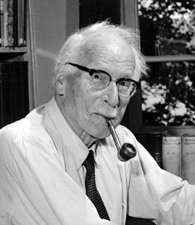A Swiss-born psychologist, Carl Jung is best known for his identification of synchronicity, the Collective Unconscious and the concept of archetypes that dictate human behavior. The advances Jung made in the field of psychology have since spawned Jungian schools and centers and inspired analysts worldwide. Jung’s work had an indelible impact on the theories of Sigmund Freud, arguably the most influential doctor in modern psychology.
Carl Jung’s Early Days
Carl Gustav Jung was born July 26, 1875, in Kesswil, Switzerland. The behavior of his parents, who frequently quarreled and temporarily separated when Carl was 3, caused him anxiety during his childhood.
His mother was tormented by spirits and spent time in a mental hospital. “From then on,” writes Jung biographer Frank McLynn, “he always felt mistrustful when the word ‘love’ was spoken and associated ‘woman’ with innate unreliability.”
Throughout his life, Jung had apparent moments of clairvoyance; although Jung stated that many so-called psychic experiences were the result of psychological disturbances, he also believed that psychic phenomena did actually exist.
Sources in this Story
- The New York Times Books: Carl Gustav Jung
- Shippensburg University: George Boeree: Carl Jung
- California State University at Long Beach: Sex, Lies and Letters: A Sample of Significant Deceptions in the Freud/Jung Relationship
- C.G. Jung Institute of Zurich
- The C.G. Jung Center of New York
- The Jung Center of Houston
Jung’s Notable Accomplishments
Much of Jung’s psychological analysis is based in dream interpretation. Jung’s dedication to studying his own inner landscape began in 1913, when he dreamt of a “‘monstrous flood’ in which he saw thousands of people dying and civilization crumbling, the water later turned to blood, and for a few weeks he dreamed about similar things” writes Dr. George Boeree, a psychology professor at Shippensburg University.
When World War I erupted, however, Jung recognized the connection between his own unconscious and the terrible events of the external world, and his life’s work became a study of various aspects of human thought. Boeree’s Web site details many of Jung’s philosophies, which include specific archetypes, the dynamics of the psyche, Synchronicity, concepts of the self and more.
Because Jung’s work coincided so much with the theories of Sigmund Freud, the two doctors developed an intimate correspondence and analyzed each other’s dreams. But the relationship became troubled when the doctors began to mistrust each other. Jung objected to Freud’s affair with Freud’s wife’s sister, Minna Bernays, while Freud suspected Jung of harboring anti-Semitic sentiments and disapproved of Jung’s own affair with a student and patient, Sabina Spielrein.
The Rest of the Story
Founded in 1948, the C.G. Jung Institute of Zurich was the first of its kind, founded with the help of Jung himself, who served as its first president until 1950. Since its creation, many Jung centers have been established both in Europe and across the United States.
The C.G. Jung Center of New York offers a training institute for analysts, general psychoanalytic courses for the public, a library and referrals to psychoanalysts.
The Jung Center of Houston is another center dedicated to the study of Jung and his theories. The center offers courses, programs and conferences that address “the critical social and spiritual issues of our time as well as the need for personal growth and development.”
This article was originally written by Isabel Cowles; it was updated June 20, 2017.











